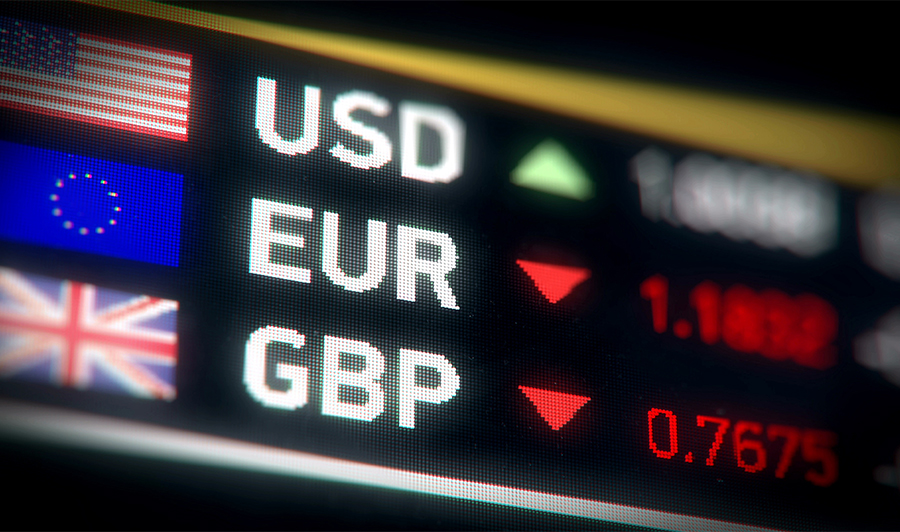
In the years since the UK voted to leave the European Union, the pound has had a tough time, with the Covid-19 pandemic and a number of Downing Street successions impacting its weight in the currency exchange market. But what exactly is it about an event such as Brexit that impacts the pound and euro?
There are multiple factors that can cause currency exchange rates to fluctuate, with political stability – or lack thereof – and recessions being two of the most damaging, largely due to the uncertainty that surrounds them. Couple this with traders’ increasing favouring of political rather than economic data, and the past few years have made for rather volatile performances from the pound and the euro.
Historical performance
Over the past 20 years there have been two major events to impact the values of the pound and the euro – the financial crash in 2008 and the UK opting to leave the EU in 2016.
- 2008/9 – US shockwaves crash on European shores: European officials wrongly believed the impact of the 2008 Lehman Brothers collapse would be felt solely within the US – though a few months later Europe became subject to the fallout. A minor recovery between 2010/11 then saw a four-year-long second dip, with recovery not in sight until 2015.
- 2016 – See EU later: For months prior to the 2016 referendum, economists had speculated about the lasting damage to the British economy, should the decision to leave be triumphant. And with speculation and uncertainty comes market volatility. Within 24 hours of the UK voting to leave the EU, the pound was down against all major world currencies, including a 30-year low against the US dollar, as the thought of a potentially autonomous UK was made clear in global currency markets.
- 2019/20 – The euro and pound gain weight: The strength of the pound surged following the result of the UK General Election in December 2019 and rose to its highest level against the euro since the result of the 2016 referendum. Currency performance over the past 12 months has been heavily skewed by the coronavirus pandemic and political events. Still, the euro saw success in 2020, with much of its progression correlating with the international affairs of its currency peers. Following the UK’s first lockdown announcement, the euro rose to its highest level against the pound, with gains in the summer of 2020, too.
Open a World Account for free
- Open up to 15 local currency accounts, with local sort codes, account numbers and IBANs
- Collect secure payments from 130+ marketplaces, overseas buyers and payment processing gateways
- Pay suppliers, partners and staff in 40 currencies without hidden fees
- Pay and get paid easily with local bank details on your invoices
- Lock in conversion rates to manage your currency risk
Why does Brexit affect the pound and euro?
As both the pound and the euro are free-floating, their respective values are determined by the supply and demand of traders. While beneficial in many aspects, currencies in this field are at a disadvantage due to the uncertainty that comes with daily changes in value. And since 2016, nothing has bred uncertainty like the fallout from the UK’s decision to exit the European Union.
From the point of view of the pound, a struggle post-Brexit was always likely and, going forward, the Bank of England's reaction and response to similar news dictates how attractive – or unappealing – the pound becomes to traders.

Businesses like yours trust WorldFirst
- Almost 1,000,000 businesses have sent $150B around the world with WorldFirst and its partner brands since 2004
- Your money is safeguarded with leading financial institutions

What our customers say about our services





